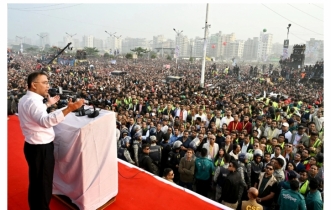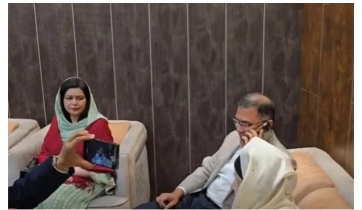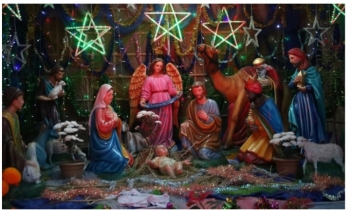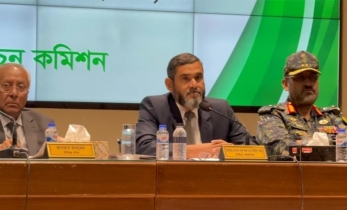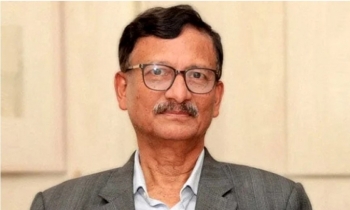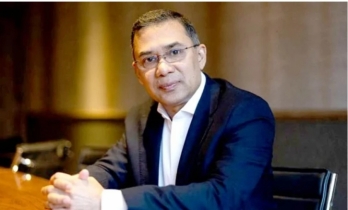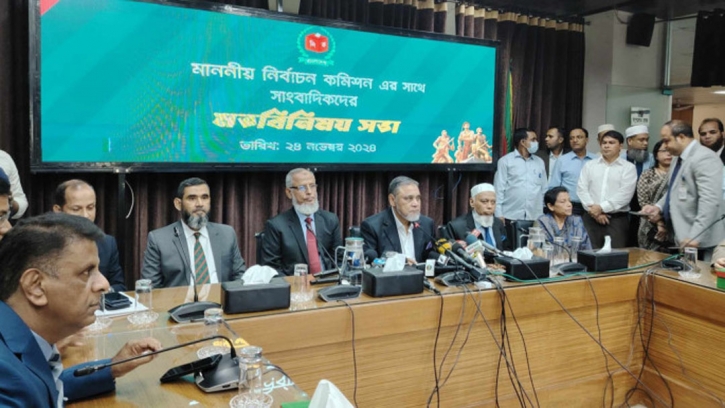
Staff Correspondent, Dhaka
Stating that the previous government has left the country in a dire state with one-sided polls, newly-appointed Chief Election Commissioner (CEC) AMM Nasir Uddin has said he does not want any more such forced elections.
"The date of the election will be fixed after necessary electoral reforms," he also said at a views exchange meeting between journalists and newly-appointed election commissioners at the Election Commission headquarters today (24 November).
"We will work to fulfil the national expectations. We will hold a free and fair election with all our strength. I have never failed in my life. I have done a lot of hard work by facing the challenges without any failures," the chief election commissioner said.
Calling on journalists to cooperate with the Election Commission, he said, "People now turn their noses up at voting. Because they could not vote [in previous elections]. You [journalists] have written reports about it. We will need your help to increase the interest of the voters and to work with pure intentions."
Replying to a question, the CEC said holding a free and fair national; election is the biggest challenge for the commission now.
Earlier on the day, CEC AMM Nasir Uddin and four other election commissioners took oath before the Chief Justice today at the Supreme Court.
The four election commissioners are Md Anwarul Islam Sarker, a retired additional secretary; Abdur Rahmanel Masud, a retired District and Sessions judge; Begum Tahmida Ahmed, a retired joint secretary; and Brig Gen (retd) Abul Fazal Md Sanaullah.
Speaking after the ceremony, CEC Nasir said, "Previous Election Commissions violated their oaths, but I will not do that. I consider this role as a great opportunity in my life, an opportunity to serve the nation."
He also said, "I have a very efficient team of election commissioners. We will not be able to do it alone, but with the cooperation of everyone, including the media, and the support of the people and political parties. Together, we will provide the nation with a free, fair, and credible election."
In response to a question about election commission reforms, he said, "Reform is an ongoing process. But to conduct an election, certain essential reforms are required. For example, some are calling for proportional representation elections, while others advocate for the previous method. If the Constitution does not provide a solution to this, how can we conduct the election?" he added.
He then said to conduct an election, they need a new voter list with the younger generation who will be eager to vote year after year.
He further said, "There is not much time left. The government has given time until December, which is not far away; it is very little time. Please be assured that our intentions are correct.
Three controversial elections
The last three elections held under the ousted Awami League-led regime were severely criticised for being partial with numerous allegations of vote rigging, crackdowns on opposition candidates, and violence.
The 2014 general elections were marked by widespread arrests of other opposition members, violence and strikes by the opposition, attacks on religious minorities, and extrajudicial killings by the government, with around 21 people killed on election day.
Almost all major opposition parties boycotted the elections, resulting in 153 of the 300 directly elected seats being uncontested and the incumbent Awami League-led Grand Alliance of Sheikh Hasina winning a landslide majority.
In 2018 Jatiya Sangsad elections were also marred by violence and were widely considered by opposition politicians and the international community to be rigged. Hasina-led Grand Alliance of 14 parties won 257 seats in the elections.
Many described it as the "Midnight Election" following media reports on ballot boxes being allegedly filled the night before the voting. While the main opposition BNP participated in the elections, it rejected the results.
The last general elections held by the Awami League earlier this year were criticised as disproportional as most major parties boycotted the polls. It recorded one of the lowest voter turnouts in Bangladesh's history.
A protest over the election turnout emerged as the Chief Election Commissioner initially claimed, based on the data at hand, that turnout was 28%, but later retracted that statement to claim turnout was 41.99%.
The ruling AL won 224 seats while independent candidates, most of whom were Awami League members propped up as dummy candidates to give a semblance of competition, won 62 seats.

